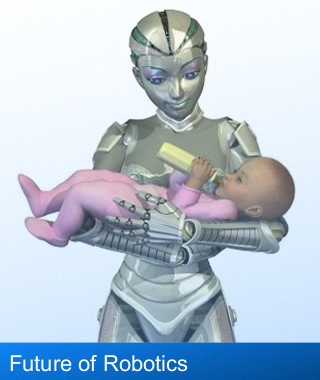Worldwide, more folks age in place of romantic kin. Contrary to standard, although not, according to Malgorzata Mikucka, it doesn’t remove its lifestyle fulfillment, or at least maybe not systematically and not inside the Switzerland.
Modern grownups has reached increasing chance of ageing rather than romantic life kin (Verdery ainsi que al, 2019). Prior studies indicated that dated-years singlehood and you will childlessness are generally associated with the all the way down life pleasure and better issue disadvantage (Dykstra 2009). But not, issue stays on which goes as years progresses.
In a recently available paper, I tried to learn the newest nexus between household members problem and you may existence pleasure among an example out of more mature Swiss, having fun with investigation from the Swiss Household Panel, SHP (Mikucka, 2020). The fresh committee were only available in 1999, and in case I presented my data, analysis had been available as much as 2017. I looked at whether solitary and you can childless respondents had been smaller pleased with its life than just married people and you may parents, as well as how these types of distinctions progressed as we grow older.
Brand new Swiss answer to lifetime satisfaction
In the cohort aged 60–64 decades initially observance (one season anywhere between 1999 and you may 2007), married couples was indeed indeed alot more pleased with the lifetime as opposed to those have been never-married, separated, otherwise widowed (Fig. 1). Yet not, the difference on old cohort (75–79 yrs old) weren’t mathematically significant, except for separated dads who have been shorter met than simply married dads. The outcome into the more youthful cohort was consistent with prior literature and therefore reported the more life fulfillment away from ). However, childlessness did not systematically correlate having life satisfaction. So it shortage of variation is at opportunity with prior degree (Albertini and you can Arpino 2018), however it are said by mix-country variation of your outcomes from childlessness.
Knowing whether or not the variations regarding family relations problem intensified or rejected as we grow old, I analysed contained in this-personal changes in existence fulfillment across the period 1999-2017 (Profile 2). Existence fulfillment certainly one of hitched mothers (the newest reference class regarding the research) declined a little with age. Which baseline rate out-of refuse failed to differ methodically with gender or education, nevertheless try formed by the lifetime movement changes. This means that one, at the least in Switzerland, lives fulfillment trajectories was molded by incidents that folks sense, instead of of the its root characteristics.
Technically, a few opposite systems can get profile the consequences out-of kinlessness as the people progress towards complex senior years. The first is the latest system regarding collective (dis)virtue. It postulates one to, because of offered experience of (dis)advantageous standards, the differences certainly teams escalate as we grow old (Dannefer 2003). Inside my investigation, the group exceptional most “advantageous conditions” have been hitched mothers, judging off their large first lives fulfillment within ages of 60–64 many years. The group that have reduced lifestyle satisfaction in one decades were never-partnered mothers.
According to the collective (dis)virtue hypothesis, the life satisfaction trajectories off married moms and dads is going to be alot more confident as opposed to those of your divorced, widowed, or never ever married. not, my personal performance don’t follow so it development (Shape 2). On the contrary, living fulfillment of a few subgroups off unmarried participants (age.grams. separated and never-hitched moms and dads) improved faster than simply that the latest partnered.
Partially similar to the hypothesis from cumulative (dis)virtue is actually the new development having never-hitched moms and dads (contour dos, third panel). That it group’s lives fulfillment, lowest beforehand, rejected quicker compared to most other teams, previous many years 75. Although not, the assistance toward hypothesis was only limited because initially lifestyle pleasure disadvantage is actually seen just on the more youthful cohort, whereas quicker price out of lifestyle fulfillment ong the fresh more mature cohort.
Age while the a keen equalizing feel?
The contrary theoretical method is known as “age-as-leveller” (Dupre 2007): it postulates one due to the fact many years enhances, wellness becomes initial, if not really the only, predictor out-of life pleasure, and also as years-relevant health decline has an effect on every person, down life pleasure is to characterize all the teams.
Qualitative evaluation of your own forecast result of Shape dos means that the life pleasure pit ranging from married and you will before married people has been closure for both folk, both in younger and you will older cohorts. not, not totally all of these alter was mathematically tall (Mikucka, 2020). Furthermore, the fresh new gap shuts from the more youthful cohort merely, while the new hypothesis forecasts that the levelling system would be to gamble a great role mostly at the complex ages.
Conclusions
Neither the fresh collective (dis)virtue theory, nor many years-as-leveller process accurately determine the outcome regarding friends situations with the existence fulfillment when people getting old. Instead, the latest buffering effectation of parenthood seems so much more relevant.
Childlessness by itself produces nothing logical huge difference for a lifetime pleasure as well as fictional character for the Switzerland in the observed age. But not, old men who turned widowers educated an elevated loss of life pleasure if they was in fact along with childless (Contour 3). Simultaneously, lives satisfaction off childless partnered and you will divorced respondents throughout the elderly cohort ). These overall performance suggest that parenthood may have a protective buffering feeling at times, e.g. one of dudes typing widowhood, however generally.
Never-hitched moms and dads appear to be a particularly fragile group. Unmarried parenthood is during itself a difficult sense (elizabeth.grams., Meier ainsi que al. 2016), particularly in a conventional personal perspective, this way out-of Switzerland.
not, a portion of the simply take-home content using this scientific studies are one to broadening instability from marriages and you can age instead of intimate kin do not twist a considerable possibilities for life pleasure of elderly people inside the Switzerland, and most likely including in other relatively wealthy countries offering welfare service. The latest (usually implicit) presumption that not enough romantic relatives is specially humdrum and you will detrimental getting old people failed to see consistent assistance during my studies.
Records
Albertini Yards., B. Arpino. 2018. Childlessness, parenthood and you will personal wellbeing: New advantages away from conceptualizing parenthood and you may childlessness while the a great continuum. Preprint. DOI: 5/osf.io/xtfq6
Bures R.Meters., T. Koropeckyj-Cox, M. Loree. 2009. Childlessness, parenthood, and you may depressive periods certainly one of center-old and older adults. Journal from Family Products 29(5): 670–687.
Dannefer D. 2003. Collective virtue/drawback plus the lives movement: Cross-fertilizing many years and personal technology idea. This new Magazines off Gerontology Series B: Emotional Sciences and you can Societal Sciences 58(6): S327–S337.
Dupre Meters.Age. 2007. Academic variations in ages-relevant activities regarding disease: Reconsidering the latest cumulative downside and many years-as-leveler hypotheses. Diary out-of Health and Societal Behavior forty-eight(1): 1–15.
Mikucka M. 2020 tavata kaunis Afrikkalainen tyttö. Old-Years Trajectories away from Existence Fulfillment. Would Singlehood and Childlessness Damage So much more When anyone Years?. Swiss Record regarding Sociology, 46(3), 397-424.
Meier A good., K. Musick, S. Flooding, Roentgen. Dunifon. 2016. Mothering experiences: Just how unmarried parenthood and you will a job build the psychological valence from parenting. Demography 53(3): 649–674.











